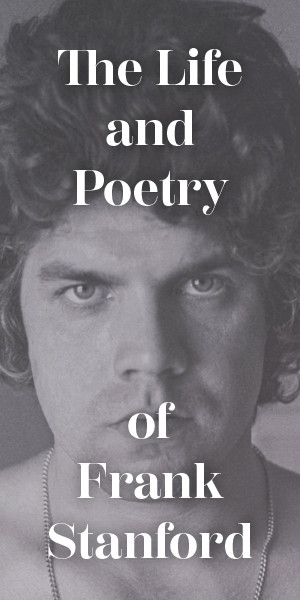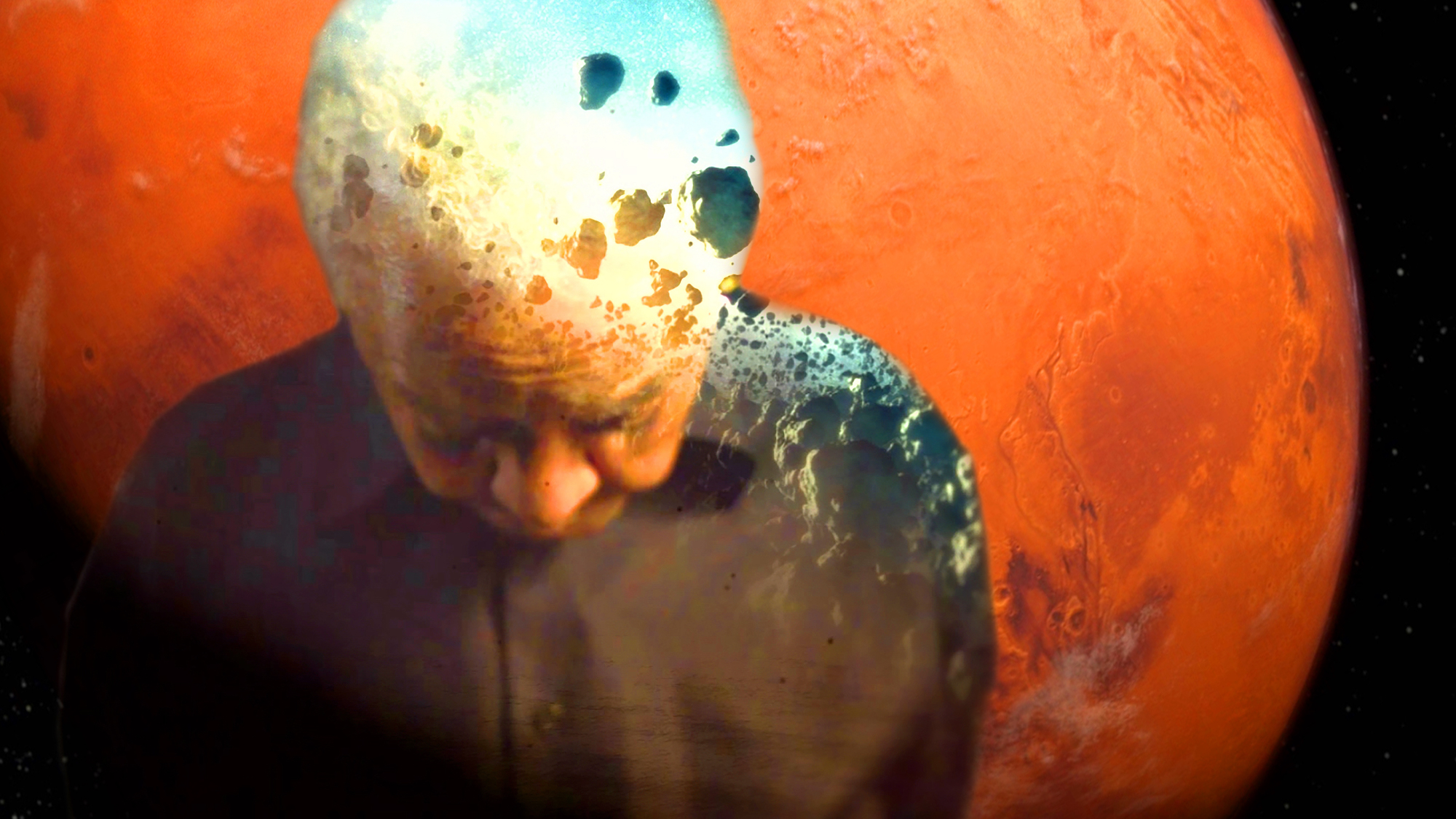
Still from ”Going to Mars: The Nikki Giovanni Project”
Nikki Giovanni’s Extraterrestrial Adventures
A conversation with the poet about her career, her documentary, and life beyond the prejudices of Earth
By Hanna Phifer
Woven into the history of Black America has been a legacy of believing in the otherworldly, whether in the tale of how The People Could Fly or in imagining the path of liberation as a railroad. Of believing that somewhere beyond our current world, there’s one that offers us a life free from our chains—both proverbial and literal. It was a belief in the heart of the slave who took into the dark of the night. It was in the protesters during the summer of 2020 and throughout the civil rights movement who took to the streets, walking into an unfamiliar territory to end state violence. Because nothing has felt quite as alien as freedom.
Going to Mars: The Nikki Giovanni Project is the new documentary about the life and legacy of poet and activist Nikki Giovanni. Born in Knoxville, Tennessee, and having attended Fisk University as a history major, Giovanni’s imagination has been deeply rooted in her identity as a Southerner. Since her debut collection, 1970’s Black Feeling, Black Talk, Giovanni has used her work to have command over her world—and to also write herself a new one. Standout works like her poems “Ego Tripping,” “Nikki Rosa,” “Allowables,” plus recent works like “A Good Job” and “The Blues”, all display Giovanni’s persistent proclivity for seeing Blackness as an auspicious space for exploration. It's her 2010 collection’s titular poem “Quilting the Black-Eyed Pea (We’re Going to Mars)” from which the documentary gets its name, and in which Giovanni declares: “The future is ours to take.”
Currently streaming on MAX, Going to Mars is a love letter to longtime fans of Giovanni’s work, filled with archival footage of the poet musing alongside other greats like James Baldwin, Mohammed Ali, and Toni Morrison, as well as present-day footage of her day-to-day life as a public intellectual and a homemaker. More than anything, the documentary stresses how much Giovanni’s career has been shaped by the idea that there was always a world where Black people could be free.
I spoke with Giovanni about her documentary, about her career, and about life on Mars.
Hanna Phifer: What was your earliest memory of writing or words coming to you?
Nikki Giovanni: Well, I think like any kid, you play with words. You start with your alphabet. My mother was a teacher, so I don’t remember my first memory of words, but I was a little girl. You play with block letters. Remember you used to get those blocks? You know, A, B, C—and then you can see if you could spell a word from those.
Did you know you always wanted to be a poet?
No, I’m not ambitious in that way. I still enjoy storytelling and I enjoy my story-telling through poetry. And maybe if I’d had talent, I would have been a singer or a dancer or played a musical instrument—none of which I can do, and it just left me with words.
How did this documentary come about?
[Directors] Michèle Stephenson and Joe Brewster have a business — a [film] studio; I don’t know how the film people call it. Michèle called Ginny [Virgina Fowler], and asked her if she would ask me if I’d be interested in a documentary.
I actually said no, because documentaries are made pretty much when you’re dead. And we talked to our attorney [Gloria] because it’s three people I listen to, and Ginnie and I said to Gloria: “Well, what do you think?”
She said, “Oh, you should do it.” And so I was outvoted… it was two to one. And so it’s like, well, okay, what do I have to do? And I realized, of course, that since I don’t know anything about film, what I should do is just stay out of their way. If they had a vision of what they wanted to do for a documentary, then I should let them do it. I had done my work. I’m a poet.
Afrofuturism has become popular within the past few years, but something that has stuck with me was when I heard a writer named Josh Hawley talking about how slave rebellions were some of the earliest acts of Afrofuturism. It made me think further about how your work as an activist makes your interest in Mars almost inevitable. Can you tell me where your love for Mars and the otherworldly came from?
I was a history major. I graduated from Fisk, and as you think about various times in history, you try to think: Where have we seen this before? Several years ago now I wrote a poem called “Quilting the Black-Eyed Pea (We’re Going to Mars),” and what caused me to think of it was I looked at Middle Passage, because I’m always reading about how Black Americans got from Africa to what was now called America. And of course, I finally realize that that’s space.
I’ve always liked space. I’ve always enjoyed just looking at the stars. If I could, I would just sit and watch the stars go by.
But in looking at Middle Passage, I realized, well, that’s outer space. It’s exactly the same thing, because you’re going from someplace you know through someplace you never know. That’s what we do when we put somebody on a rocket. They’re going from Earth into an area that they don’t know— they think they might know, but they’re not sure. You’re going up, up, up, and then you’re going to land, hopefully, on something that you can name. But you don’t know it, because nobody has landed on Mars; we don’t know any of this.
And so I thought, Well that’s what Black people have done. And we have survived and thrived and shared a lot of love. We brought a lot of goodness.
I remember in a recent interview you spoke about your support of the trans community, because you said: “I see that transgender youngsters are the ones who are helping to take planet Earth into the galaxy because we’re going to run into other life forms that our gender does not matter.” Can you speak about that a bit?
I think the transgender kids are the bravest kids right now that we see; they’re as brave as my generation was in breaking down segregation. They’re breaking down—I don’t have the word for it right now—but it’s gender prejudice, and [the idea that] somebody has decided that they can tell you who you are, what your name should be, and how you should look.
And those youngsters are saying, “No, I can decide who I am, what my name should be.” Everybody’s mad at me like, You should be a girl because we’ve decided you’re a girl. And they say, “Well, who the hell are you?” I can decide that I’m a boy. And if it makes me happy, what does it mean to you? And I can decide that my name is John. And if you don’t like that my name is Geraldine, why can’t you name yourself? And if the people who know you and love you—or have to talk to you, maybe they don’t even love you but they have to talk to you—you can tell them, “This is my name, and I would like to be referred to in that way.”
But when we go into the galaxy, a life-form may say, “Who are you?” Well, there’s no point in talking to another life-form and [saying] “I’m a boy or a girl,” because it may have no meaning. That may mean nothing to them. So what you’re going to say is, “I am a life form from the third planet, from the yellow sun,” therefore giving yourself an identity. You don’t have an identity because you say, “I’m a boy, I’m a girl, I’m a Jew or Gentile, I’m a Catholic or Baptist.” That doesn’t mean anything once you get beyond the prejudices of Earth.
So yeah, I think the transgender students are really brave because they’re taking a lot of flack for just wanting to be themselves and to have the right to have their own name. I think that’s incredibly brave, and I think that they’re absolutely right to want to do that. To want to own themselves.
You famously changed your name. What motivated that for you?
I’m named after my mother who was named Yolanda Cornelia Watson, and she married Jones Giovanni, whom everybody called Gus. That was his nickname. And for reasons I don’t know, and everybody’s gone now who could tell me, they called me Nikki—Nikki Rosa.
As I grew older, I became Nikki. That’s all I’ve ever been. I didn’t want to have my mother think I didn’t want to carry her name. Because I liked my mother, and I think it’s an honor to have her name. But as Mommy transitioned, I thought, Well, I need to get this straightened down, because everybody calls me Nikki. So I did what Americans do: I went to a lawyer and I had my name legally changed.
Would it be safe to say that your mother was your first muse?
I would say my grandmother. I’ve talked about transitions [in my work], and I think grandmother was probably the person who made me think of transitions, because I don’t think of her as being dead. I always still think of her as being with me. I think that my grandmother was my first muse.
Does your legacy concern you?
Not yet. Maybe when I get a little older I’ll think, Do I have a legacy? But, you know, you’re just—you just put one foot in front of the other every day.
Because of social media, something that you did fifty years ago can randomly resurface. I’m thinking specifically about your conversation with James Baldwin that went viral a few years ago, and now it comes back up every few months. How did you learn that it had come to the surface again?
Somebody, maybe several people told me, “Oh, I saw your conversation with James Baldwin.” I don’t do the Internet. I don’t do X, Twitter, or Facebook. I don’t do none of that because I think it makes you crazy. But people were telling me that they had seen it. And so I thought, Well, that’s really nice.
And then it became a book. I guess that was thirty years ago. It was Lippincott. And Lippincott was ultimately sold to somebody... I’ve been with HarperCollins all my life, so that’s the only book publisher I’ve had.
And I said, “I think it’s great, you know, [republish] it.” But as you know, Jimmy’s dead, and his brother David, whom I knew, has passed, and you know, his lawyer—which really started to complicate things—his lawyer passed. There wasn’t anybody to give permission on Jimmy’s side.
And so it took a while because people are crazy and greedy. And I think that they wanted more than it was worth. I had just said yes because I was proud of it, and I think it should be a book because I’m a book person. And so we only just recently—I think within the last month—finally got permission to bring it back and be a book, and I’m very proud of that.
I’m glad that it’s on the internet since people do the internet. I don’t so I haven’t seen it.
We meet during a time of global anti-war protest, when many activists have taken to adopting some of the techniques from the anti-apartheid movement of the eighties. The documentary briefly talks about your opposition to the anti-apartheid movement of the eighties. Can you speak a bit about that?
I wasn’t against the boycott movement. I was not pro-apartheid. Yeah, I saw that, I’ve seen the film three times, so I saw that. And I think that what might have been misunderstood was that I thought: You clean your own backyard. And we saw people—and it’s their right, it’s their life—and they were complaining about a situation in South Africa. I never saw them complaining about the situation in Haiti. And Papa Doc and Baby Doc were some of the worst people who ever walked this earth.
And so I thought, Why are we worried about another country when we’re living in a country that is destroying or trying to destroy us? And so that was my position. And a lot of people didn’t like it. But my job is not to be liked by a lot of people. My job is to tell the truth as I see it. And so that’s what it was.
I mean, we look right now at Ukraine, or we look at what’s happening with Israel and the Palestinians, and nobody can be in favor of any of that. Either way—not in favor of the Russians, or in favor of what Israel is doing because all of these people, mostly women and children now, being killed. There’s no way to be in favor of that, but we still have fourteen-year-old Black boys... and we have a woman, Breonna Taylor, who was in her bed who got shot by a cop, and they don’t even want to call him guilty. Or we get the Sandy Hook. I mean, it’s so many of them; I could go on.
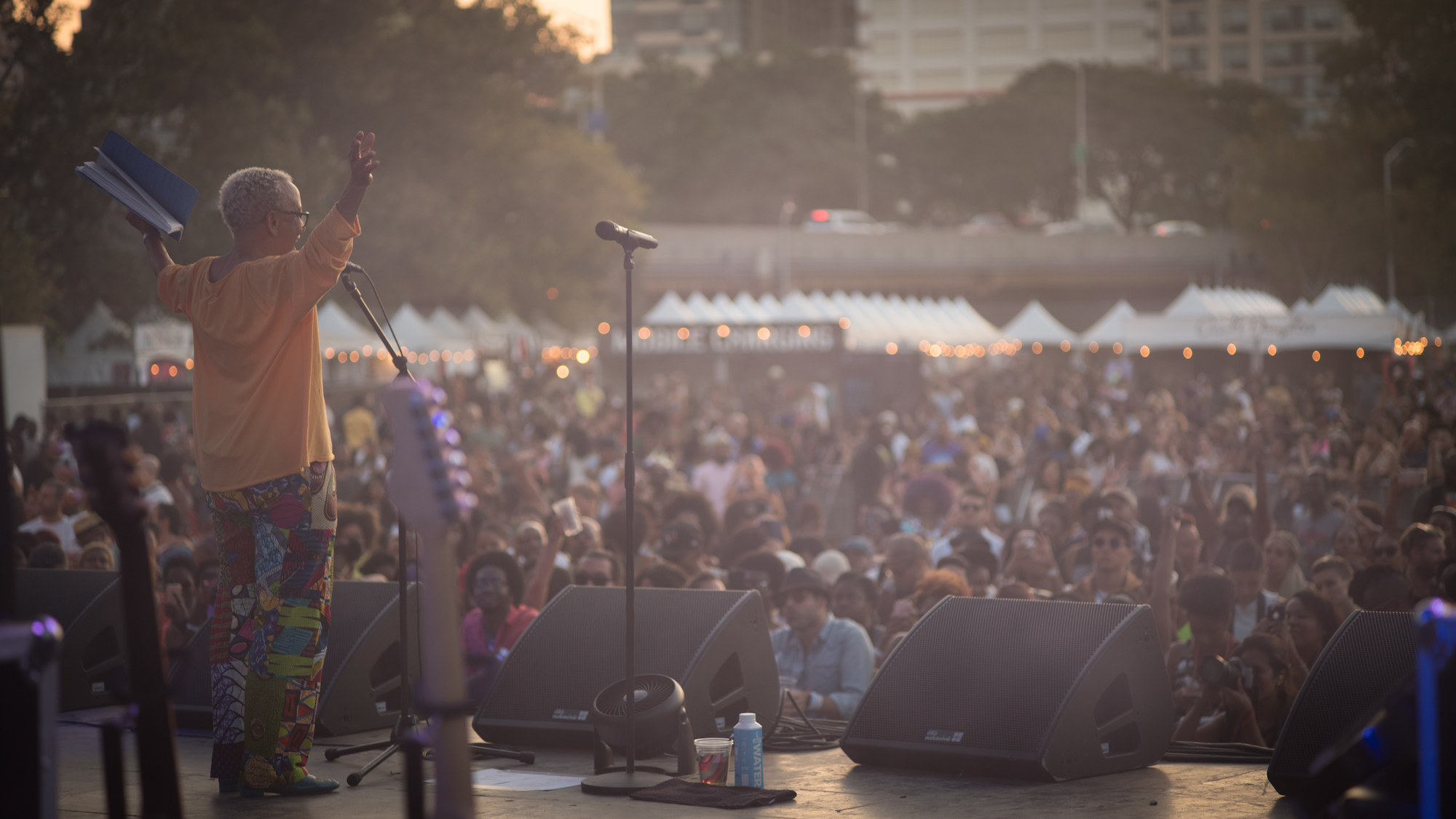
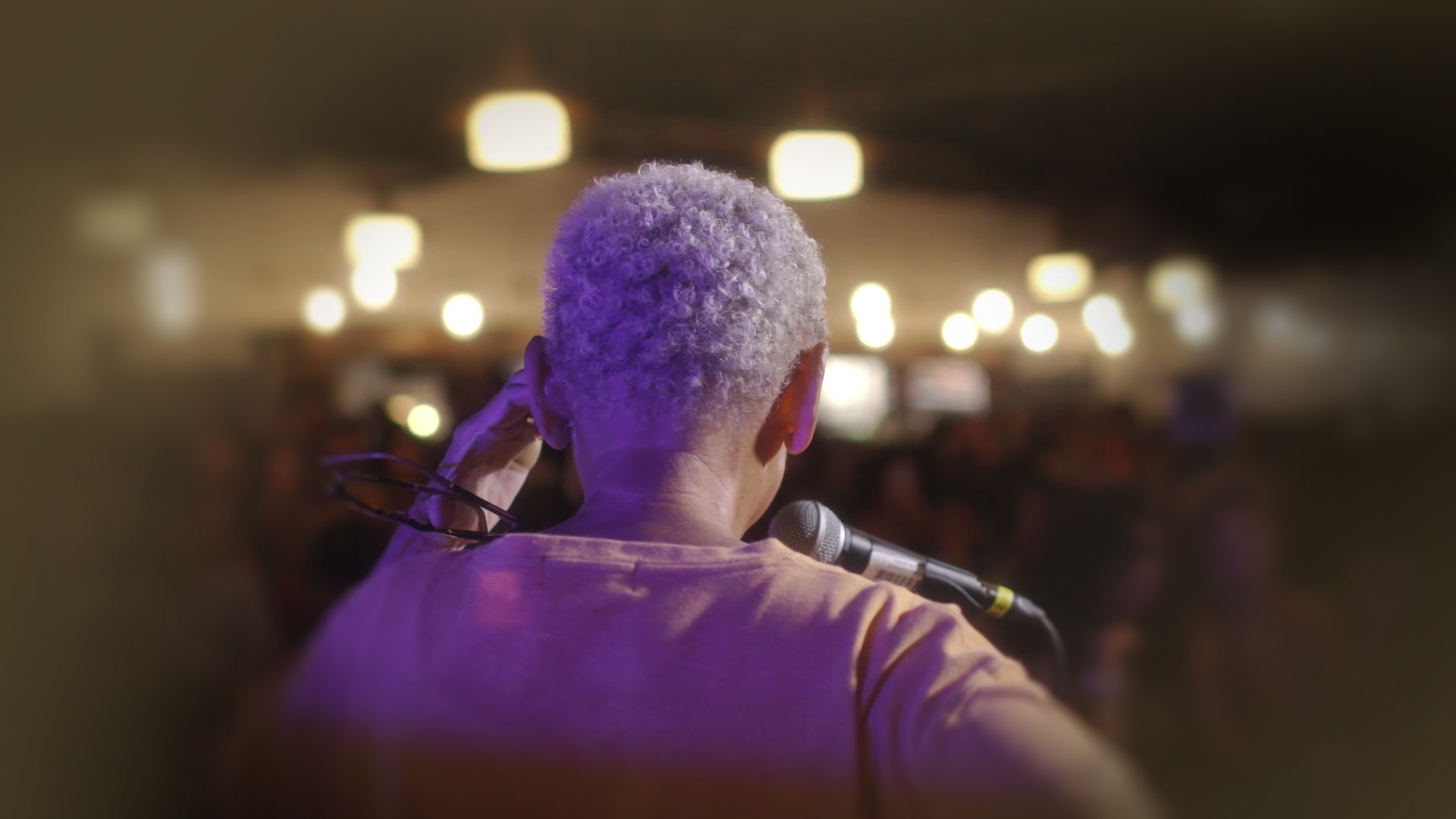
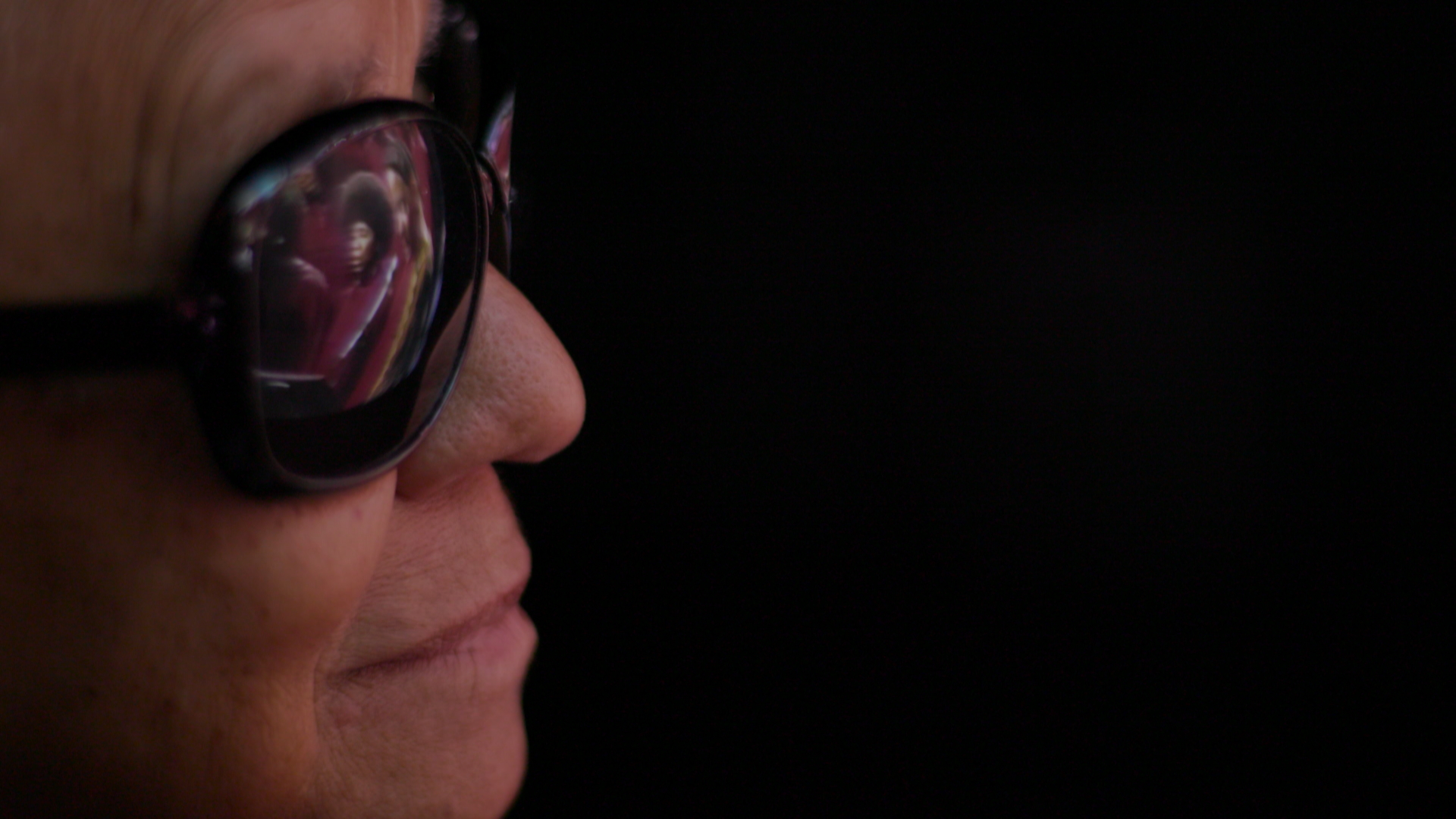
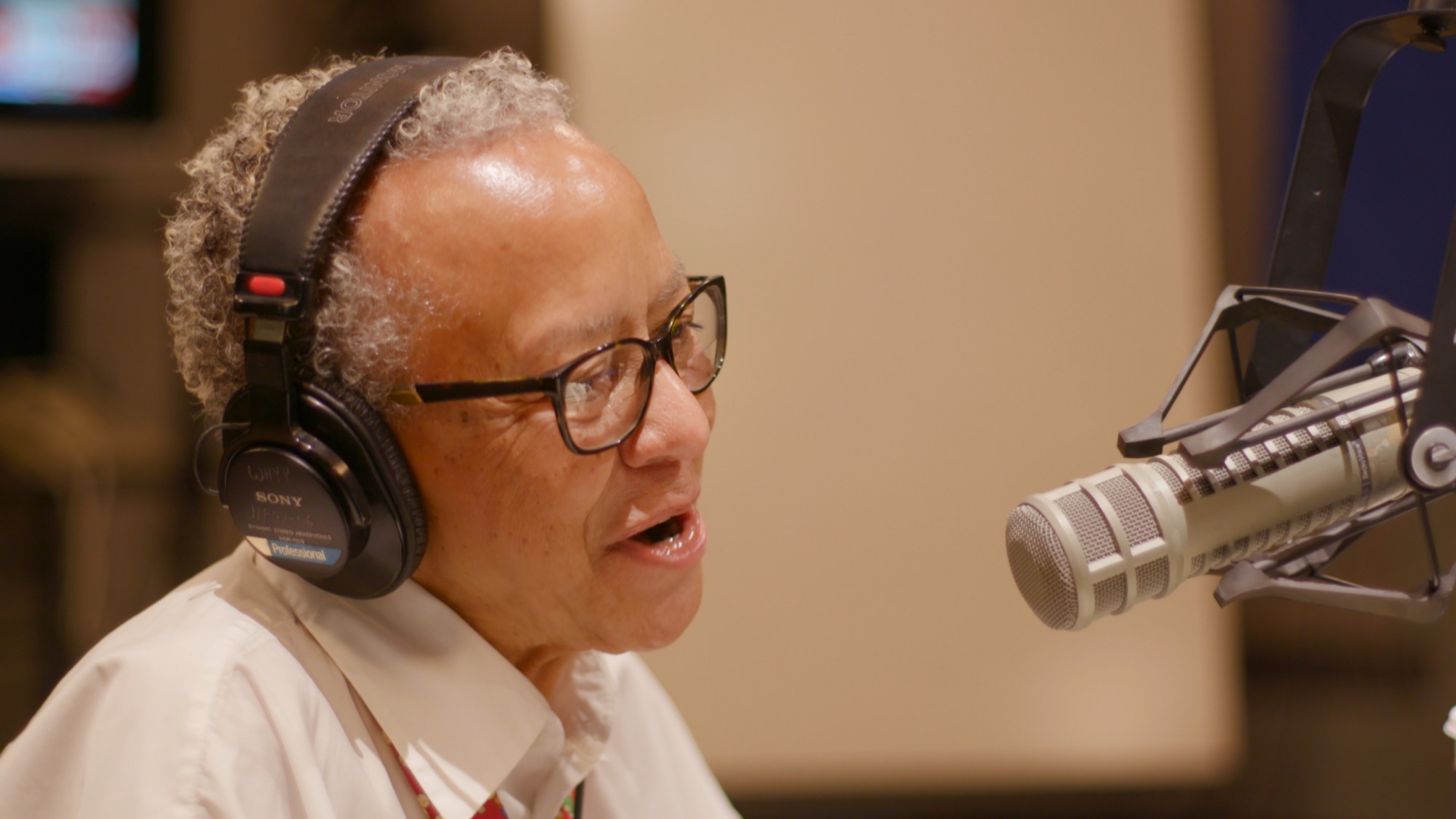
Stills from ”Going to Mars: The Nikki Giovanni Project”
I know you recently retired from Virginia Tech, so how has retirement been treating you?
I’ve been too busy to know that I’m retired.
I think I’m starting 2024 to be retired because ’23 has been very busy and I’ve enjoyed it. The film came out and we’ve been traveling a lot with the film. We went to the London premiere and the New York premiere.
As a poet, you’re always teaching. So the question is whether you’re teaching in a classroom and grading papers and going to committee meetings, or are you teaching through your work and on a stage? And so you never really retire. You, as a writer, you’re always teaching. So I’m not really retired, I’m just not getting paid.
Do you ever get worried that you’ll run out of words?
No. Why would we run out of words? We keep inventing words, don’t we? We keep creating words. We keep discovering new things, and in discovering something new we have to discover new words for it. Why would we run out of words?
Some writers or artists feel like they’ll run up on like, permanent writer’s block.
I used to say that to my students when I was teaching in a classroom: “There’s no such thing as writer’s block, you [just] don’t have anything else to say at this time.” And my suggestion to any writer who says “I’m having writer’s block” is: Go read a book. Go sit down. If you’re grown, go sit down with a glass of wine. And if you’re not, go sit down with a cup of coffee.
Who are the current writers and thinkers you gravitate to?
I really love Kwame Alexander. I taught him and I think he’s quite an exceptional young man. And I love his new book, Why Fathers Cry at Night.
I love the work of Edwidge Danticat, who is an American, but her people are Haitian. She is simply brilliant. There’s no other word. And if the Nobel people can read—and I simply hope that they can—she should be the next Nobelist. She should win.
Toni Morrison, of course, was a friend and quite a brilliant American writer. I was really so happy to see Toni win the Nobel because it was well, well-deserved. And I think that Edwidge should [win] also.
And there’s a young writer whose work I really enjoy so much, she’s coming up, her name is Renee Watson. She writes young adult, and she has just written her adult novel. And so it’ll be out in a couple of months. I can’t wait to read it because I really appreciate the chances that Renee takes. She listens to the truth in her head, and she just writes it.
I don’t know if you remember, but there’s a famous photo of you with a group of Black women writers that included Gwendolyn Brooks, Toni Cade Bambara, Sonia Sanchez, Pearl Cleage, Louise Meriwether, Pinkie Gordon Lane, Johnnetta Cole, Paula Giddings, and Mari Evans. I know you said you’re not on the internet, but it goes viral every once in a while. What did it feel like to be in a community of Black female writers that we still love and read today?
Oh I’m really thrilled. If that photo is the one that I think it is, I think we were at Spelman College when Janetta Cole became the president. And when I look at that picture now, in one way, honestly, it makes me sad because over half of us have transitioned. And so I talk to Sonia—not a lot, but every now and then—and her health is about the same as mine. So we both are hanging in. I’m a little bit younger than Sonia, but when you’re eighty years old, it doesn’t matter if you’re younger or older, you know; I enjoy talking to her.
And that’s important. I’m trying to think of who else was in that photo, but I’m glad it’s gone viral. I’m glad because then you get to see a bunch of women. A group of us, and we went to Atlanta to be supportive. And that’s what I like about Black women. We are supportive of each other. Every now and then there’s going to be somebody that you don’t like, and that’s normal. Everybody tries to make you think you should love everybody but you not only can’t, but shouldn’t. But I like the fact that Black women, for the most part, are very, very supportive of each other.
What brings you joy these days?
I like to cook. I like to read. I used to like the dust. I was reading some of my poetry recently, and it started off saying “I like the dust,” but I don’t like the dust anymore. If you come to my house, you’d have to practically bring a tissue, because you sneeze. I am going to dust one day before Christmas because I have a lot of friends [and] I’m going to have a party. I’m making chitlins.
What brings you hope these days?
I guess there’s something I hope for. It’s just—it’s interesting to be alive and I’m glad. I don’t hope to be alive. I accept whatever’s coming. I’m eighty years old. I don’t like it. I don’t read the obituary pages, by the way, because I hate it when I see somebody seventy-six died, you know, seventy-eight. Oh, no, what the hell is this?
They’re babies. Rosalyn Carter just died recently, Queen Elizabeth died—and they were all ninety-six and stuff like that. That makes sense to me. And I just did a program with a woman named Grace Linn; she started a movement against banned books, a wonderful lady. She’s one hundred and one and she is just going on. And I thought, Yeah, now that’s what I want to be. And so one day, Grace won’t wake up here. She’ll wake up someplace else. But I kind of liked that. And I probably won’t live to be… I don’t hope to live to be one hundred and one.
Cause I don’t think God wakes up and says, “What does Nikki want today?” So I don’t bother him with that. I just…. Whatever it is, I deal with it.



